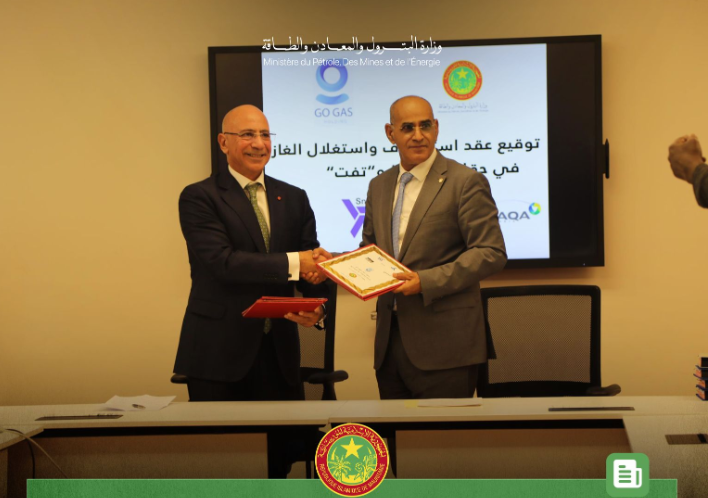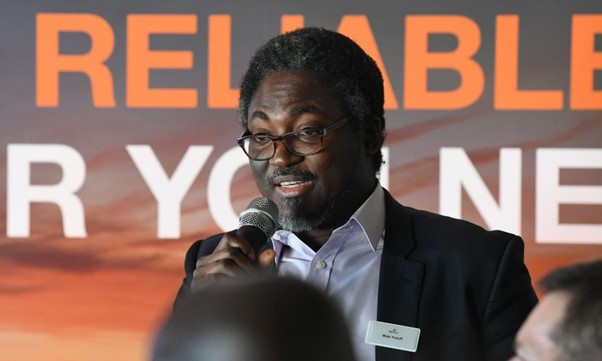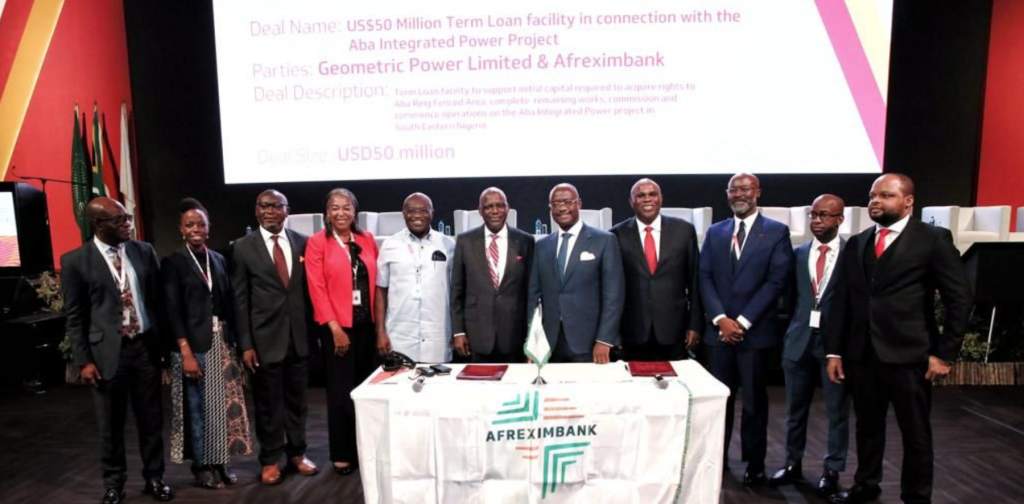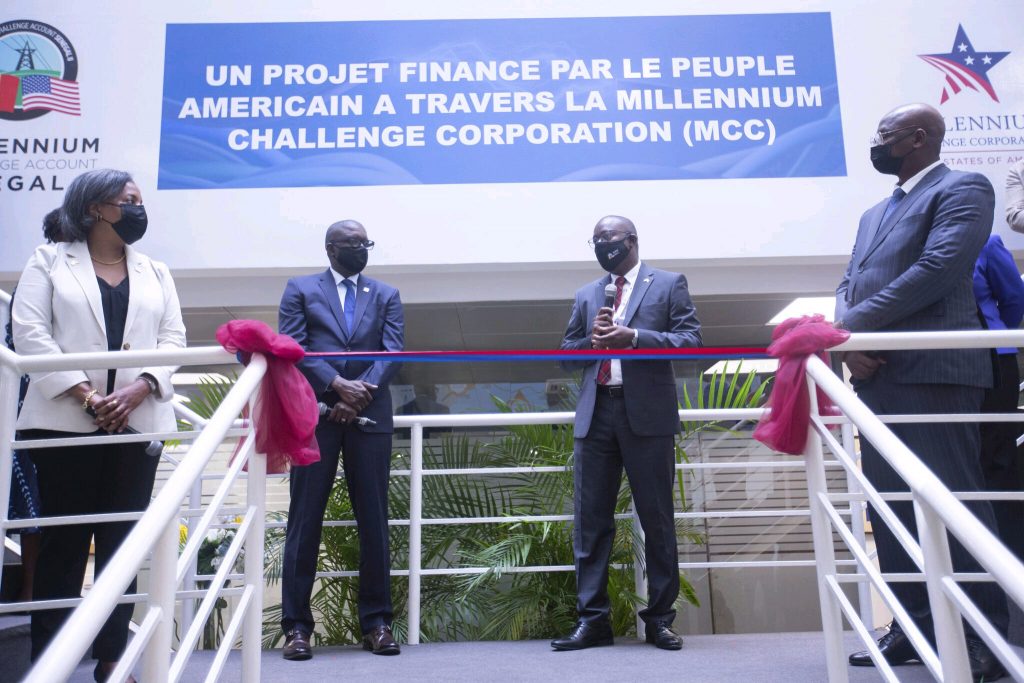Thermal Power

Mauritania signs domestic gas deal for Banda and Tevet fields
Mauritania has signed an exploration and gas production contract with energy firms Go gas and Taqa Arabia to tap into the discovered Banda and Tevet fields, which boast an estimated 2.2 trillion cubic feet (Tcf) of natural gas reserves. The deal represents an investment of some $1bn and is a key part of the West African nation’s plan to improve its energy infrastructure and boost electricity production. The contract, a cornerstone of Mauritania’s energy strategy, aims at supplying domestic gas to fuel the 180-megawatt Nouakchott dual power plant located north of the capital. The development is expected to stabilize the electricity supply, proving crucial for the country’s key industrial and mining sectors. “The signing of this agreement represents an important step in the framework of the new dynamic of valorization of Mauritania’s national gas resources,” Minister of Petroleum, Mines and Energy Nani Ould Chrougha said in an official statement, emphasizing the deal’s alignment with efforts to stimulate investments in the upstream segment of the oil and gas industry. Last week on Wednesday, the Mauritanian government gave approval to the gas exploration and production contract with the Taqa-Go consortium following a competitive bidding process. The consortium’s commitment includes the development of a new 120-megawatt gas-fired power plant and the enhancement of the existing 180-megawatt facility, reflecting Mauritania’s shift towards more efficient energy production. The exploitation of the Banda and Tevet fields is crucial to Mauritania’s goal of achieving universal electricity access by 2030. Banda was discovered in 2002 by Woodside Energy and was quickly earmarked as a domestic gas project, whose economics have been deemed too unattractive by most of its operators ever since. The project also aims to foster a synergistic relationship between the gas and power sectors, offering competitively priced, reliable electricity to support the nation’s industrial backbone. Both state utility SOMELEC and state-mining company SNIM are expected to benefit from more reliable gas-to-power supply. This agreement marks a significant step in Mauritania’s journey towards energy self-sufficiency as it pushes to leverage its natural resources for economic growth and energy autonomy.
Read more »
Opinion: Nigeria’s industry is rising to the twin challenge of decarbonisation and energy security
by Wale Yusuff, Managing Director of Wärtsilä in Nigeria Wale Yusuff, the Managing Director of Wärtsilä in Nigeria, explains how businesses operating in energy-intensive industries like cement or steel are investing in flexible engine technologies to secure reliable and efficient power while also setting the perfect stage to make good on their decarbonisation objectives. Nigeria is a major industrial hub. It is home to energy-intensive manufacturing businesses whose operations, and growth potential, are constrained by the weakness of the country’s electricity supply. To mitigate this, industrial companies have been building their own power generation capabilities, but the result has often been the reliance on expensive and polluting diesel generators. As such, the industrial sector represents one of the country’s largest sources of greenhouse gas emissions. In most places in Africa, the development of renewable energy capacity is a very competitive solution that industrials can adopt to lower their environmental impact and energy costs. But things aren’t as clear-cut in Nigeria. Most of its industrial activity is in the south, a region where wind and solar resources are often not available in the right quantity to make renewables competitive at today’s equipment prices. It leaves industrials with a twin challenge to meet. First and foremost, they need to secure their own reliable and affordable power capacity either by buying electricity from an independent power producer or by building their own “captive” plant. Second, they need to integrate decarbonisation in their overall energy strategy. Both objectives are not contradictory. By making smart technology choices, forward looking businesses like BUA Cement, African Foundries, Lafarge, Wempco, Nestle and Flour Mills have found a way to hit these two birds with one stone. Here is how. Securing a reliable supply of electricity Mitigating power generation risk is critical to Nigeria’s industrial growth. As one of the world’s largest producers of liquified natural gas (LNG), Nigeria has a strong interest to develop its utilization to power local industries. That’s why flexible engine power plants have emerged as the technology of choice for Nigeria’s industries. Fuel-flexible engine technology provides a great hedge against fuel supply risk as it can operate on multiple types of fuels, from gas to heavy or light fuel oil, and switch between fuels while operating. This fuel-flexibility is also a key enabler to the decarbonisation strategy of industrials, as engine power plants can be converted to run on sustainable fuels like biofuels and green hydrogen, ammonia, or methanol, when these become available. Thanks to their modular design, Wärtsilä engine power plants are easy to construct, fully scalable and can be deployed in phases. They have the flexibility to be ramped-up or down quickly to adjust to demand, they have a high operating efficiency even at partial load and are designed to cope with regular stops and starts. This very high operating flexibility is also what is needed for the future integration of intermittent renewable energy capacity to the power mix. What is more, they require much less water to function than competing power technologies, which is an important water conservation consideration in view of Nigeria’s long dry seasons. With all these attributes, flexible engine power plants offer a cost-effective solution to meet energy demand in the short term, and environmental objectives in the longer term. BUA Cement PLC, one of Nigeria’s largest cement producers, is one example of an energy intensive industrial company which has invested to secure its own flexible and reliable power supply and decrease its carbon footprint. As the demand for cement is increasing every year, BUA has taken advantage of the modularity of engine technology to increase its power capacity in stages. The company is currently installing a 70 MW power plant for the line 4 in its Sokoto cement plant, NW Nigeria. This is in addition to a 50 MW power plant commissioned two years earlier for the line 3 of the same cement plant. Future expansion plans include another 70MW for its OBU line 3 cement plant in Edo State SW by the end of 2023. The plants feature Wärtsilä 34 DF dual-fuel engines operating primarily with LNG and PNG, but with the flexibility to switch to an alternative fuel should there be interruptions to the gas supply, quality, or pressure. What is more, the operational flexibility of the Wärtsilä engines provides future-proofing advantages by enabling the potential integration of renewable energy further down the line. Paving the way for renewables Nigeria’s long term energy strategy has defined the rapid deployment of renewables and strengthening the power transmission network as key objectives. But it must also overcome the specific challenges of the tropical monsoon climate in the industrialized south of the country where the solar and wind potential is respectively 30% and 40% lower than in the hot and semi-arid conditions in the north. By investing in gas engine power plants, energy-intensive industries will not only decrease their carbon footprint, but they will also free up resources for the government to expand the transmission network enabling the entire country to benefit from the natural gas reserves located in the south and renewable resources in the north. Paras Energy sets an example of how this can work. Since installing a 132 MW Wärtsilä gas engine power plant in Ikorodu in Lagos State and Ogijo in Ogun State, Paras Energy is supplying the company’s steel production needs as well as providing power to the Nigerian grid to support over 20,000 homes annually. The company is now commissioning a 10 MW solar power plant in Suleja and a 5 MW solar rooftop system for commercial and industrial customers is under development. Flexible engine power plants represent a smart and future-proof investment for Nigeria’s energy intensive industries. They offer the efficient power capabilities needed to offset the shortcomings of the national power grid, strengthen their global competitiveness, and reduce their GHG emissions today and tomorrow. By working towards the country’s decarbonization targets, the smart energy investments made by industry will benefit the whole country.
Read more »
Nigeria: 188 MW Aba Integrated Gas-to-Power Project gets $50m boost from Afreximbank
Last week during the second Intra-African Trade Fair in Durban, the African Export-Import Bank (Afreximbank) signed a $50m term loan facility with Geometric Power Limited for its Aba Integrated Power Project in Nigeria. The facility will notably help finance the initial capital required to acquire rights to the Aba Ring Fenced Area within which electricity from the power plant will be distributed and sold. It will also support the completion of remaining works, and the commissioning and commencement of operations of the project. A Unique and Fully Integrated Gas-to-Power Project The Aba IPP has been in the making for quite some time and will be Nigeria’s first integrated and independent power utility. The project includes a 141 MW gas-fired power plant (licensed for 188 MW), a 27km gas pipeline, and a distribution utility selling power within a ring-fenced distribution network. The project is structured as an embedded electricity facility designed to generate and distribute its own electricity. Electricity will be generated by Geometric Power Aba Limited (GPAL), the entity that owns and operates the power station, but will be distributed by Aba Power Limited Electric (APLE). The former has a power generation license while the latter benefits from an electric distribution license. Gas feedstock will be supplied by the Shell Petroleum Development Co. (SPDC) joint-venture, with whom a gas supply and aggregation agreement (GSAA) was executed in late 2018. The agreement notably covers the supply of about 43 MMscfd of gas. “Being one of the only 24hr reliable power supplier, Aba IPP will revive moribund industries, power the Enyimba Economic City as well as markets such as the famous Ariaria International Market,” declared Geometric Power Chairman & CEO Prof. Bart Nnaji, who previously served as Nigeria’s Power Minister in 2011 and 2012.
Read more »
The U.S. commits $550m to boost Senegal’s electricity sector
On September 9, the U.S. Government’s Millennium Challenge Corporation (MCC) officially launched the $550 million MCC–Senegal Power Compact in Dakar. The five-year partnership had been signed since 2018 and will be completed by an additional $50 million commitment from the Government of Senegal. Investments will be made specifically in the strengthening of electricity networks in Dakar along with the boosting of electricity access in peri-urban and rural areas of the south and central regions. “The compact investment is designed to strengthen the power sector, by increasing reliability and access to electricity and aims to help the Government of Senegal establish a modern and efficient foundation upon which the nation’s power system can grow,” the MCC explains. The compact includes in fact three distinct projects: a $376.8m project to modernize and strengthen Senelec’s transmission network, a $57.3m project to increase access to electricity in rural and peri-urban areas, and a $43.5m reform and capacity building project to strengthen the country’s laws, policies and regulations governing the electricity sector. The strengthening of the state-utility’s transmission network will mobilise most of the company’s financing and target high-voltage transmission network in around around greater Dakar. It is notably expecting to pave the way for additional private sector investment in power generation in the future, including gas-to-power and renewable energy sources. Beyond official support from the American government, Senegal has attracted several private American investors into its power sector. The 86.6 MW Cap des Biches power plant for instance was the result of an agreement between ContourGlobal and Senelec executed during the Africa Leaders’ Summit convened by President Barack Obama in 2014. Both companies worked to rehabilitate the former GTI Dakar power station and construct a new thermal facility that remains until today one of Senegal’s top performing power plants.
Read more »